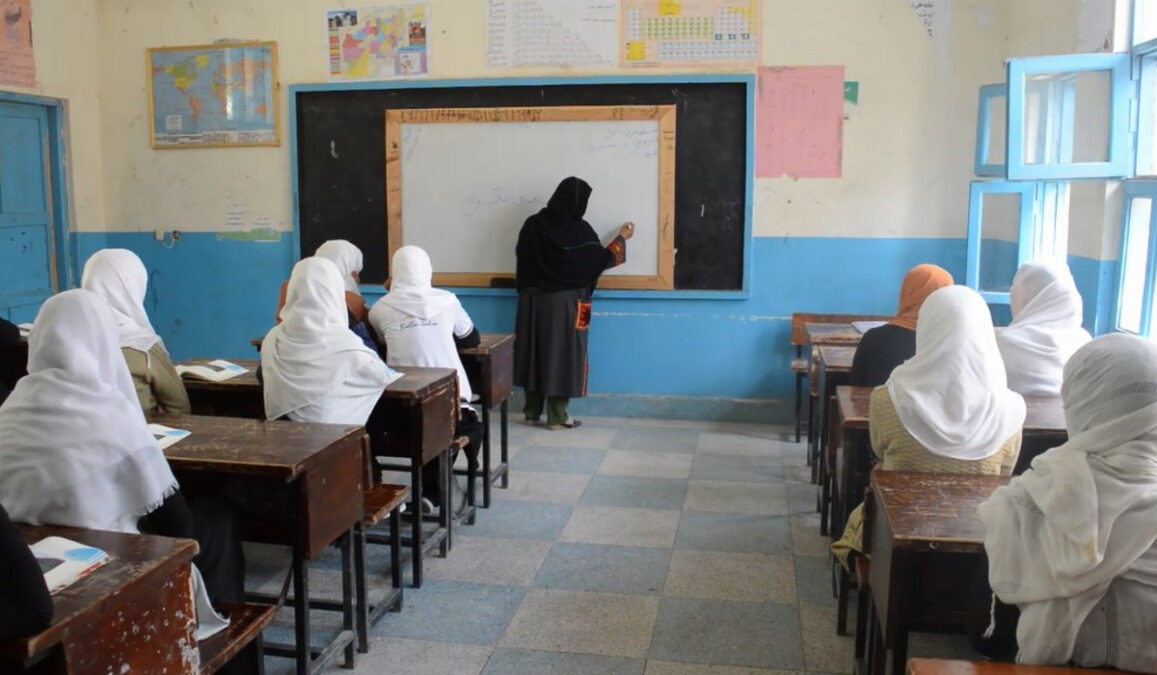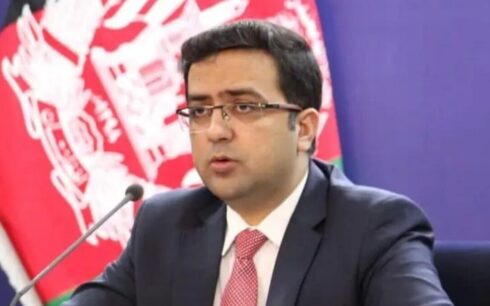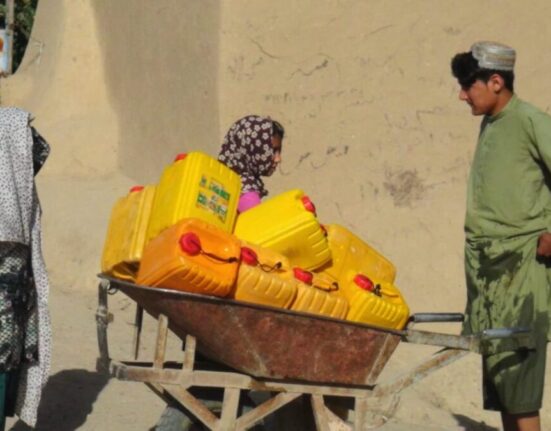Despite a blanket ban on secondary schools for girls, Taliban governors in six provinces in the country have allowed Afghan girls over the past year to continue with their education, sources confirmed to Amu.
The six provinces include Balkh, Kunduz, Jawzjan, Sar-e-pul, Faryab, and Daikundi provinces.
Four sources, including an employee of the Taliban’s department of education in Balkh, confirmed this to Amu TV.
Nazanin, a student in Grade 11 of Goharshad Begum High School in Mazar-e-Sharif, said that she is happy that Balkh schools remained open.
“The schools are open to us. I am glad. But the strict rules in the school are suffocating. Students must wear the headscarf inside the classroom, this will disrupt the lesson and no one has the right to protest [against this],” she said.
Raihan Mohammadi, a 12th-grade student at Qari Fethullah Balkh School, said that she has been going to school since the Taliban takeover in August 2021, however, “there are many restrictions imposed after the fall of the Republic, girls are forced to wear long black dresses.”
An employee of the Taliban’s department of education in Balkh, who wished to remain anonymous, said that teaching methods were the same as during the former government.
“In the first days, they (Taliban) wanted to change the curriculum; But the decision was canceled. The teaching method continues as before and the restrictions have discouraged students [from learning],” he said.
According to statistics, more than 600 schools operate in Balkh province with 600,000 male and female students, of which 50 percent are girls.
Abu Hamza, a resident of Balkh, was the former Taliban provincial governor but was replaced by Mohammad Dawood Mozmal, a resident of Helmand.
Sources familiar with the matter said the current Taliban governor for Balkh had been against the closure of schools for girls.
Kunduz province
In Kunduz, schools have remained open to girls, four female students told Amu TV.
Hasina, a 12th-grade student, said that she has attended school over the past year and called on the Taliban to lift the ban and reopen all girls schools across the country.
“Every Muslim man and woman has the right to study, gaining knowledge is obligatory for Muslim men and women [according to Islamic teachings],” she added.
Fahima, another student in Grade 12 in Kunduz, stated that she has also been going to school throughout the past year.
Statistics provided to the media by the officials of the Taliban ministry of education show that there are 500 schools in Kunduz with a total of 380,000 male and female students.
Mawlawi Nisar Ahmad Nusrat, who is of Pashtun ethnicity and is a resident of Baghlan province, works as Taliban’s governor in Kunduz. Sources said that he is a close member of the Kandahari Taliban.
Jawzjan province
Qari Mohammad Ismail Rasikh, the Taliban’s governor for Jawzjan, is of Turkmen ethnicity, and also decided to keep girls schools open in his province. Sources familiar with the matter told Amu TV that he is close to the Taliban’s deputy chief minister Mullah Baradar.
Nazila, who is a 12th-grade student, said that she continued her studies without any disruption since the Taliban regained power.
She added: “From the beginning of this year, until the end of the exams, I went to my lessons at school. After the end of the academic year, a general exam was taken.”
Jawzjan province has around 375 schools with 175,000 students of which 42 percent are girls.
Sar-e-Pul province
Sar-e-Pul provincial governor Mohammad Yaqub Abdul Rahman is also of Pashtun ethnicity. He also decided to keep schools for girls open.
A number of students in Sar-e-Pul told Amu TV that female students have continued to attend schools during the past academic year.
Parisa, a student, said that she went to school “every day, there were no obstacles, I finished the exam myself, I hope that there will still be no obstacles like with university.”
Taliban-run Bakhtar news agency said there are 409 schools in this province and that 40 percent of the students are girls.
Faryab province
A close aide to the Haqqani Network is Mullah Shoaib Risalat, who is Taliban’s governor in Faryab province.
Rabia, a student in Grade 10, said: “The officials of the department of education asked students not to bring the issue of schools being open to the attention of the media, so that high-ranking officials do not order schools to close like [they did] in Paktia.”
According to reports, there are 599 schools in Faryab province with 423,000 students – 42 percent of them are female students.
Daikundi province
Obaidullah Kandahari, the Taliban governor in Daikundi, is close to Mullah Baradar. He was the sixth Taliban provincial governor to ignore the Kabul order to ban teenage girls from secondary school.
Sohaila, a student in Grade 8 at Chogani High School in Daikundi, said that she has continued her studies over the past year without any problems and says she hopes this will continue into the next academic year.
She said: “The lessons were not of the same quality as they were last year; I am glad that at least I was able to go to school, and I didn’t fall behind in my studies.”
Amu TV made several calls to Taliban officials about this but were unable to reach the Taliban’s spokesman Zabihullah Mujahid, the group’s deputy spokesman Bilal Karimi, or Azizullah Riyan, a spokesman for the Taliban-run education ministry.
After the Taliban’s advance on August 15, 2021, the group imposed strict restrictions on women. The Taliban dissolved the ministry of women affairs and replaced it with the ministry for the propagation of virtue and the prevention of vice, an entity involved in implementing harsh orders against Afghan women.
The group also barred Afghan teenage girls from attending school above Grade six.
The Taliban minister for the propagation of virtue and the prevention of vice Khalid Hanafi stated that education for girls was Mubah, an Islamic term meaning a person is free to do it or not to do it.
He said: “Everywhere you go, there is a lot of talk about education. Gentlemen, [contemporary] higher education is Mubah. When there is a conflict between a Mubah and the Amir (Mullah Haibatullah Akhundzada); obeying Amir is obligatory,” the minister said.





